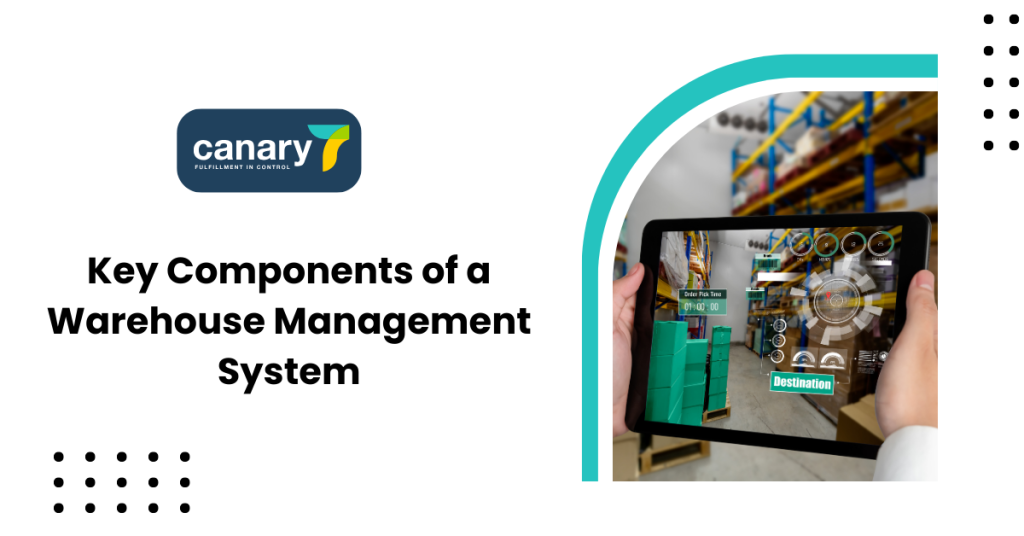In today’s fast-paced, customer-centric business landscape, efficient warehouse management is no longer just a nice-to-have; it is a necessity. As businesses expand, managing inventory, labor, and space becomes increasingly complex, making it challenging to meet growing customer expectations. This is where a robust Warehouse Management System (WMS) comes into play.
According to recent data from Fortune Business Insights, the global warehouse management software market is projected to grow from $5.74 billion in 2023 to $10.12 billion by 2030, reflecting a compound annual growth rate (CAGR) of 8.2%. This surge reflects the growing demand for the best warehouse management software as businesses seek more efficient, streamlined operations.
The Power of Digital Transformation in Warehousing
The digital transformation of warehouses has revolutionized the way supply chains operate. By integrating advanced technologies, businesses can reduce costs, improve customer satisfaction, and streamline operations. At the heart of this transformation is a Warehouse Management System (WMS), offering a range of benefits:
1. Enhanced Operational Efficiency

Automated Processes: A cloud-based WMS automates essential tasks like inventory management, order fulfillment, and shipping, reducing manual errors and increasing productivity.
Optimized Warehouse Layout: Intelligent space utilization and efficient workflow design minimize travel time and labor costs, improving overall efficiency.
Real-time Inventory Visibility: WMS solutions provide accurate real-time tracking of inventory, preventing costly stockouts or overstocking and ensuring smooth, efficient operations.
2. Improved Customer Satisfaction
Faster Order Fulfillment: Automated workflows enable quicker processing and shipping, meeting the rising customer demand for same-day or next-day delivery.
Accurate Order Picking and Packing: A WMS minimizes errors, ensuring that customers receive the correct products, boosting satisfaction.
Better Customer Communication: With real-time visibility into inventory and order status, businesses can provide accurate updates to customers, enhancing trust and reliability.
3. Cost Reduction

- Labour Optimization: Warehouse labour management solutions improve task allocation and workforce management, reducing labor costs while boosting productivity.
- Reduced Inventory Costs: Optimizing inventory levels with a stock control solution minimizes holding costs and prevents stockouts, leading to better financial efficiency.
- Lower Operational Expenses: Automation significantly reduces errors and operational inefficiencies, delivering long-term cost savings.
Major Reasons Driving the Demand for WMS in 2024
1. Room for Scalability
In an ever-evolving digital world, scalability is essential to meet growing demands. Traditional warehouse systems often struggle with the complexity of modern business needs. Warehouse management systems in the UK provide flexible, scalable options that allow warehouses to respond quickly to fluctuations in demand, product diversification, and seasonal peaks.
For instance, Company X, an eCommerce retailer, scaled up from processing 200 orders per day to over 1,000 by integrating Canary7’s Warehouse Management System. This system enabled them to manage inventory and order fulfillment seamlessly without disrupting their workflow.
2. Rising Customer Expectations

As digital commerce expands, customers expect faster and more precise deliveries. WMS systems integrate advanced technologies like RFID, Internet of Things (IoT), and real-time inventory tracking, providing businesses with accurate inventory visibility, automating order picking, and improving shipping accuracy. This ensures businesses meet or exceed customer expectations, contributing to higher satisfaction rates.
3. Enhanced Collaboration and Communication
Cloud-based WMS solutions facilitate real-time collaboration across supply chain stakeholders, fostering seamless communication between suppliers, warehouses, and carriers. This interconnected ecosystem ensures faster response times and improved efficiency across the board.
4. Data Management
With more data flowing through supply chains than ever before, managing and analyzing this information is critical. The latest WMS solutions provide seamless data integration from multiple platforms, delivering real-time insights that optimize decision-making. This data can help predict stockouts, manage labor effectively, and improve overall operational efficiency.
5. Compliance and Regulation

Warehouse management systems play a key role in helping businesses stay compliant with the increasing number of regulations in the supply chain industry. From product traceability to quality control, WMS tools make it easier to meet regulatory requirements and maintain up-to-date compliance records.
Key Components of a Warehouse Management System
A robust WMS typically includes several core components designed to improve warehouse efficiency and streamline operations:

1. Inventory Management
Inventory management is at the heart of any WMS. These systems provide complete visibility into stock levels, movements, and even product expiration dates, helping businesses avoid costly stockouts or overstocking. A WMS integrated with inventory management system software can notify managers when it’s time to reorder or replenish stock, optimizing operations and reducing waste.
For small UK businesses, leveraging small business inventory software integrated with their WMS can be a game-changer. Automation reduces human error and improves order accuracy, enabling businesses to operate efficiently even with limited staff.
2. Order Fulfillment
WMS systems enhance the order management process, from receiving to packing and shipping. Advanced systems can integrate with order management solutions like Canary7’s Order Management System to allow for smoother logistics planning, carrier selection, and routing. This streamlines the entire fulfillment process, ensuring that orders are completed accurately and on time.
3. Labour Management
With built-in labour management system software, WMS solutions help warehouse managers schedule tasks, assign duties, and monitor employee performance in real-time. By analyzing performance metrics, managers can reallocate resources effectively, improve productivity, and reduce labor costs.
4. Reporting and Analytics
WMS systems provide robust reporting and analytics features that give warehouse managers deep insights into operations. Real-time data on key performance indicators (KPIs) such as order quality, inventory turnover, and labor costs allow for continuous optimization. This data-driven decision making helps improve operational efficiency and reduces costs.
The Future of Warehouse Management
As technology continues to evolve, so do WMS solutions. Businesses should keep an eye on emerging trends that will further optimize warehouse management:

- Artificial Intelligence (AI) and Machine Learning (ML): AI-driven WMS can predict demand, optimize inventory levels, and make intelligent decisions in real-time, improving overall warehouse efficiency.
- Internet of Things (IoT): IoT devices are revolutionizing asset tracking, enabling real-time monitoring of warehouse conditions, equipment, and inventory.
- Robotics and Automation: Robotic systems are already being implemented to automate repetitive tasks like picking, packing, and sorting, further improving accuracy and reducing labor costs.
- Voice-Activated Technology: Voice-controlled WMS systems streamline workflows and reduce errors, increasing operational efficiency.
Conclusion
In today’s competitive business environment, adopting a Warehouse Management System is no longer optional—it’s a necessity. The advancements in automation, intelligent planning, and data-driven decision-making that WMS offers will be essential for businesses looking to stay ahead of the competition in 2024. Whether it’s improving labor management, increasing order accuracy, or handling real-time data, a robust WMS will transform your operations and deliver tangible results.
Thousands of growing brands in the UK are already turning to Canary7 for their eCommerce warehousing and fulfillment needs. Want to know how Canary7 can optimize your supply chain strategy? Contact our solutions team today!
Call to Action
Ready to streamline your warehouse operations and boost your business’s operational efficiency? Don’t wait! Reach out to Canary7 today and discover how our cutting-edge WMS solutions can revolutionize your warehouse management and help you scale effortlessly in 2024.

Namrata Chawla
Author
UPDATED ON: 22nd Oct 2024
Namrata Chawla, a professional writer, crafts compelling weblog content on warehouse management, inventory control, logistics, and beyond. With a wealth of experience in this niche, she's dedicated to delivering unique, informative, and top-tier posts. Her commitment to exploration ensures fresh perspectives in each insightful blog post.
Subscribe to get latest posts straight in your inbox.